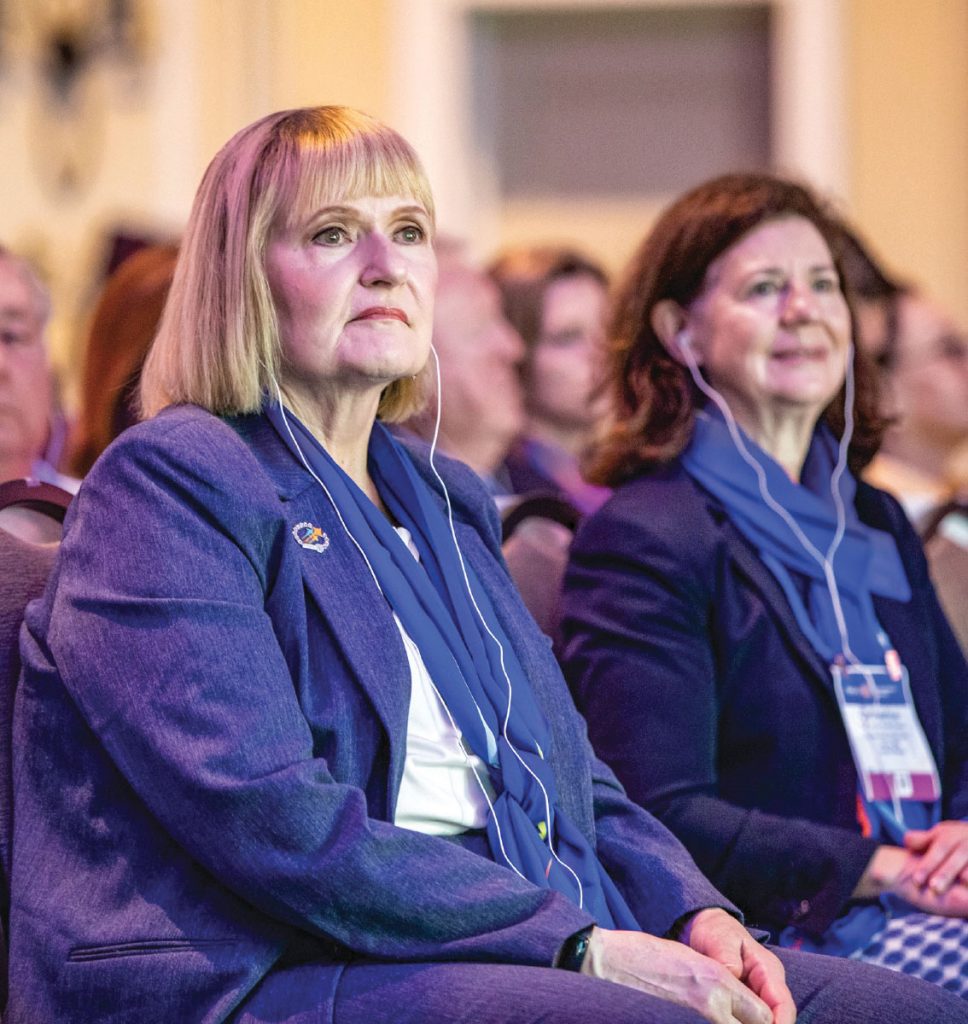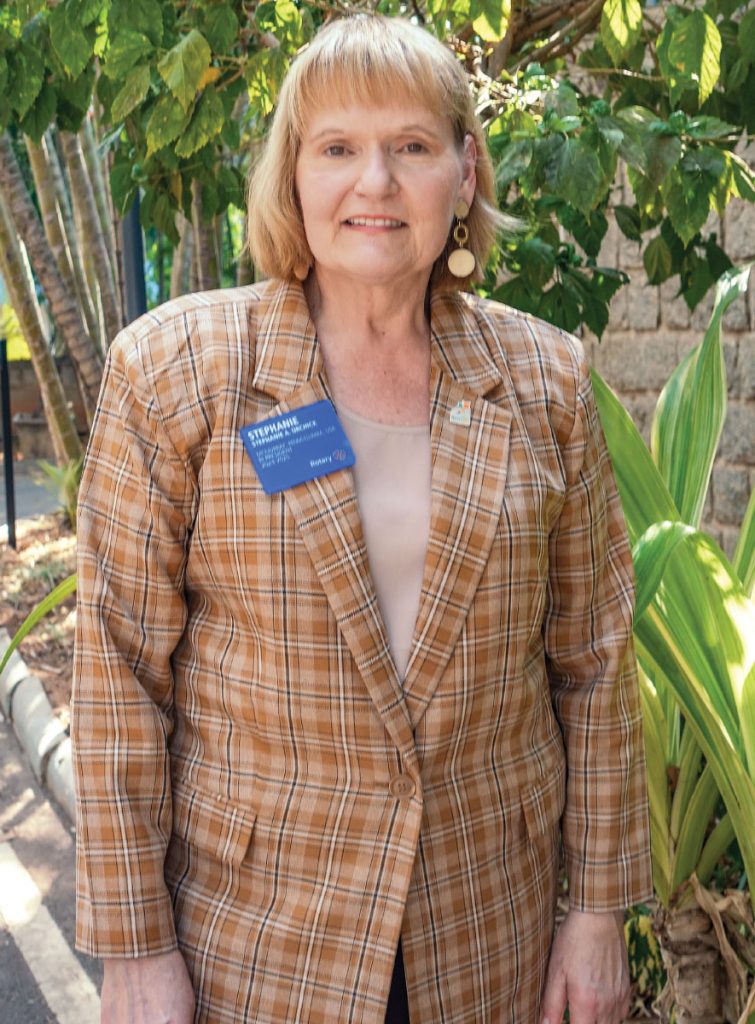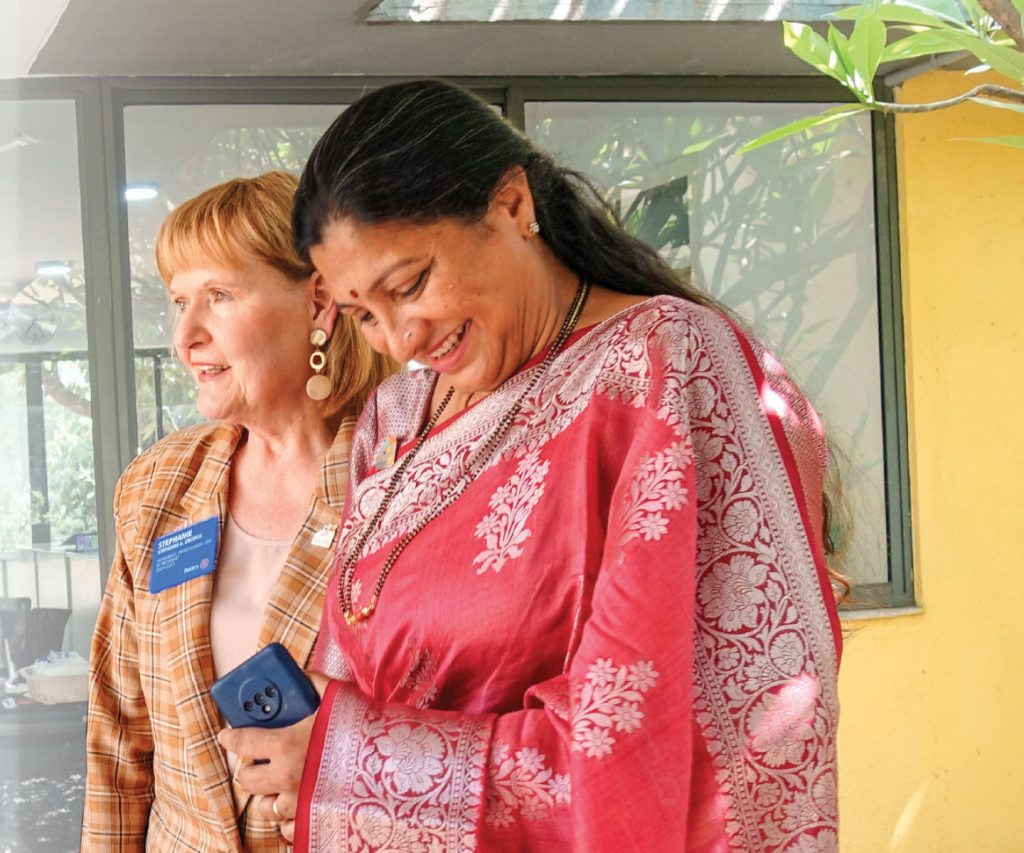The woman who always says YES in Rotary
Believe it or not, but when she was growing up, your incoming RI President Stephanie Urchick wanted to become a spy! “I wanted to become a spy and work for the government,” she says with a twinkle in her eye.
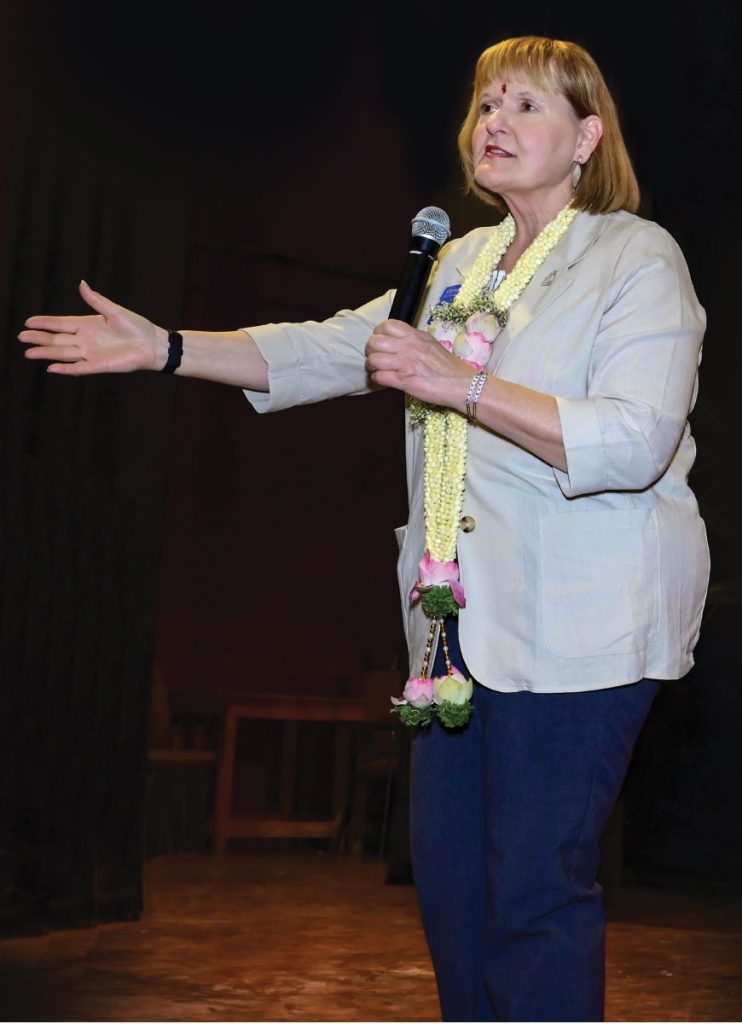
So she must have seen all the James Bond movies, I ask her. “Of course; I’ve watched all of them,” she smiles. Her favourite James Bond was Sean Connery; “He was the best… and the original, but Daniel Craig was good too in the recent ones and he was so handsome!”
After we exchange notes on how Pierce Brosnan was another very handsome James Bond, we return to her quest to become a spy. “I did all my education in Pennsylvania and my major was international studies. Since I wanted to be a spy and work for the government, in my final year in college I applied to a lot of US government agencies, the FBI, the CIA, anything that had an alphabet,” she grins.
When I was growing up, I had a mantra… and still have it… that life is always more exciting on the other side of Yes. Say yes and just figure it out. As long as it is legal.
But with the applications requiring detailed family background, and her grandparents hailing from Eastern Europe, she had to submit the names of all family members who were still in that region. Perhaps that was the reason that she, unlike her friends, never got any interview calls! She went on to do her Masters, followed by a PhD in leadership at the Indiana University in Pennsylvania.
Stephanie, currently a member of RC McMurray, is on a tour of India, and her programme is choc-a-bloc; I catch up with her in Bengaluru for this interview, which has to be done during the drive from the airport to Karunashraya, a palliative care facility for chronic cancer patients. Despite the early morning flight, she is relaxed, easy to talk to, and comes through as a plain-speaking person.
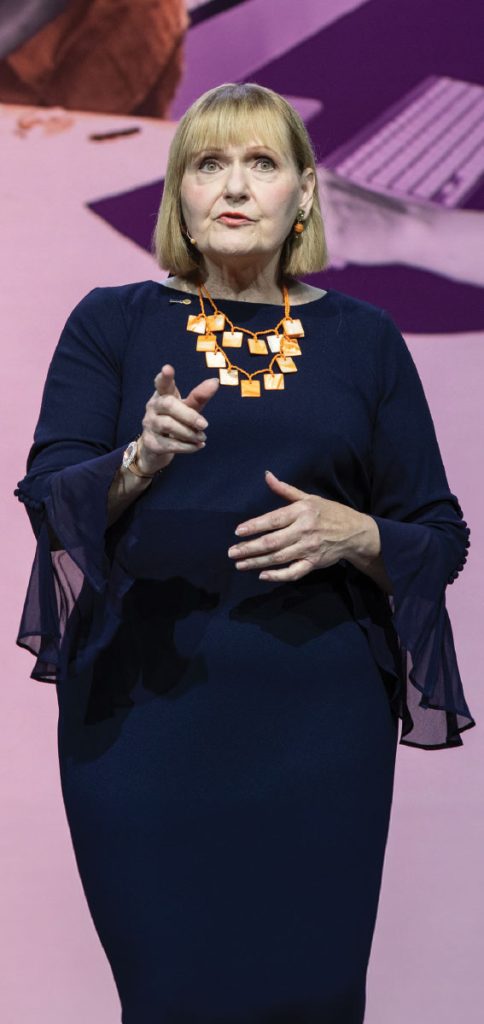
On how she joined Rotary, Stephanie says her parents were middle class, “nobody in my family had been in a service club so when I heard about Rotary it was completely new to me. When I was working in a small college in Pennsylvania, a woman walked into my office and said would you like to come to a Rotary meeting. I said what the heck is Rotary? She talked about what Rotarians do and when she got to the international part, I said ‘oh yeah, I want to go’.”
Despite all the marketing and advertising we’ve done, people still think we are an organisation of rich old men eating out, but that’s not who we are.
She joined the Rotary Club of California, Pennsylvania, in 1991, and “got engaged in club activities right away… I never looked back.” By the fourth meeting she was doing the club’s newsletter and 18 months later, became the club president. Asked how difficult it was to become district governor, she says, “It wasn’t difficult at all, because everything in Rotary sounds exciting to me. No matter what people ask me to do, I say yes, yes, yes. So, when people ask me how did you get to be RI president, I say I just kept saying ‘yes’!”
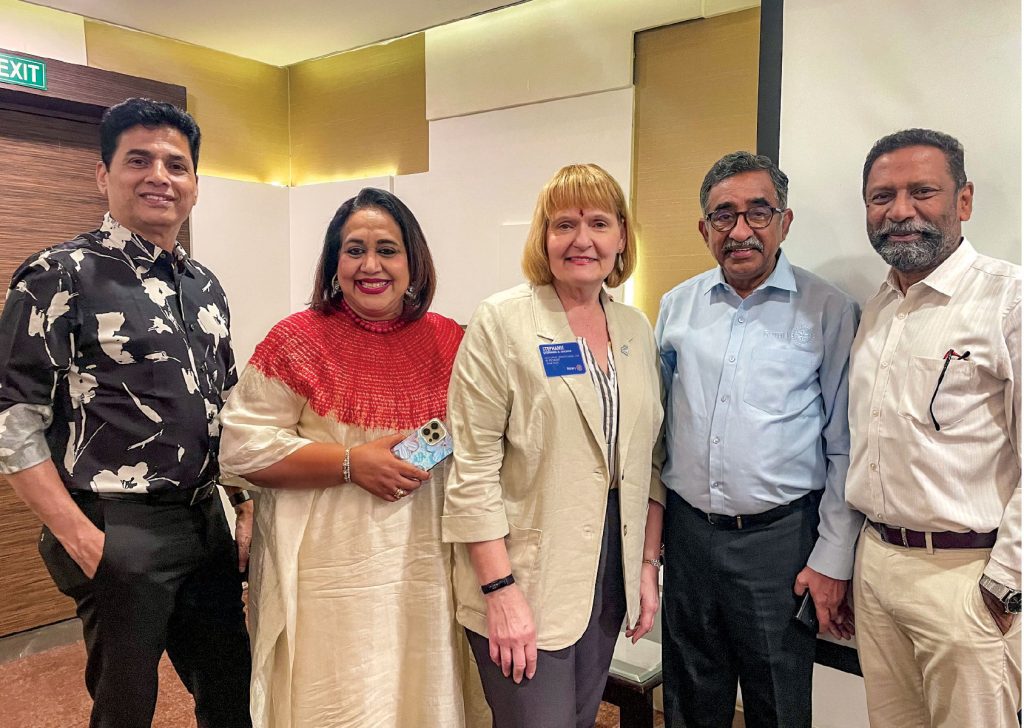
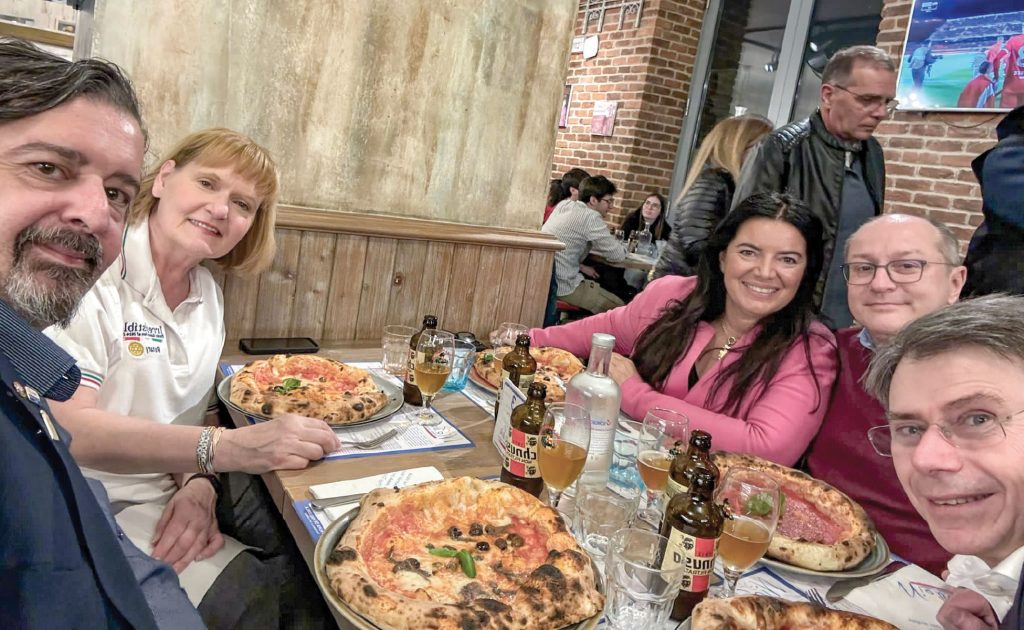
When I protest saying it can’t be that easy, Stephanie says firmly: “Oh yes, it is. When I was growing up, I had a mantra… and still have it… that life is always more exciting on the other side of Yes. Say yes and just figure it out. As long as it is legal. That way you get to do more, and see more and be more.”
Asked to define the best qualities required of a good leader, she says, “At the top of the list for me is always communicate, communicate, communicate. You need to listen to the people who are working with you and share information with them, and it goes both ways. Communication is key, the absolute key,” she responds emphatically.
Indian Rotarians take Rotary very seriously. They are proud to be Rotarians.
Also, she adds, “people have to trust you, or else they won’t trust your vision. A good leader also has to understand the value of praising people, telling them they’ve done a good job, and doing that publicly. And when they have not done a good job, tell them privately.”

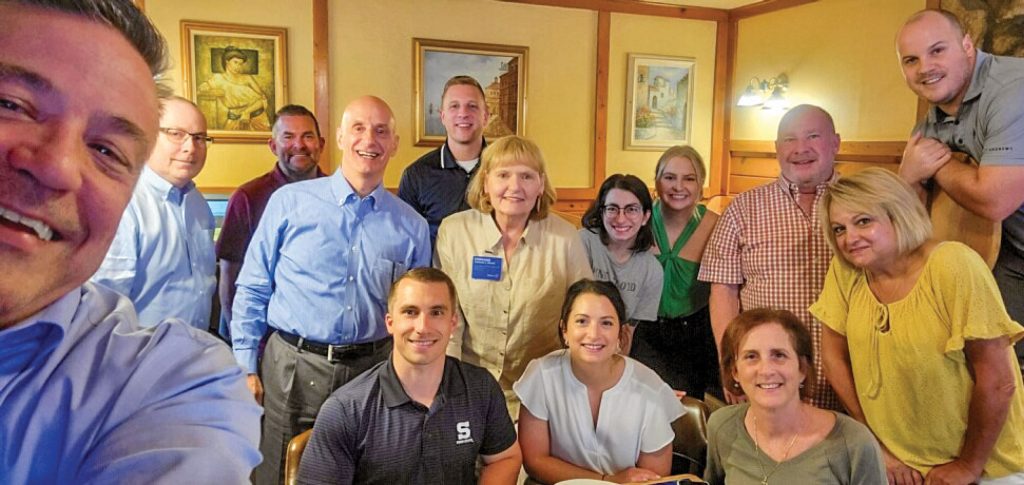

How Stephanie chose her theme — The magic of Rotary — has an interesting story, dating back several years to when she “was on a Rotary mission in the Dominican Republic, to put water filters in homes.” She was in one home with two women and three little boys. “We put the filter together, then put dirty water in, and it would come out clean, and we did that a few times, and when we stopped, one of the boys grabbed my sleeve and said: ‘Lady, lady, show me that magic again.’ He saw that as magic but the real magic was the change in that family’s life thanks to Rotary giving them clean water. And I believe every single Rotarian has had some experience like this that they have seen or been part of, that has made them say: Wow, this is why we do what we do.”
She is happy with her theme, as “everywhere I go people comment on how adaptable this theme is and can be used in so many different ways.”
We have to grow our organisation. Rotary is the strongest and best organisation in the world, and I don’t want to see it go away.
Coming to her priorities as RI president, she is very clear that the first priority is “membership growth. We have to grow our organisation. Rotary is the strongest and best organisation in the world, and I don’t want to see it go away. For 30 years or more, we’ve been talking about membership and talking about it…but we are people of action and we have to do something about it. I know its hard work, it’s not like you can just wave a magic wand and it will happen; it has to be intentional.”
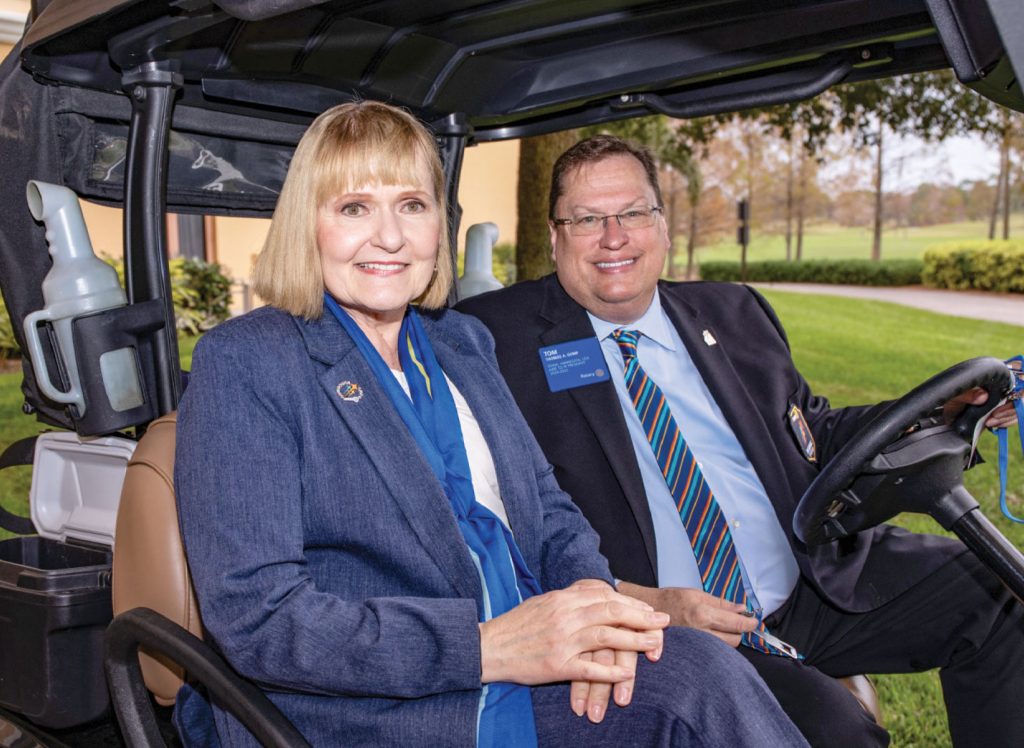
To grow Rotary, she adds, “we have to do three things at the same time. We have to attract members to our existing clubs, we have to keep members in our clubs because it is no use bringing in members and the existing ones leave, and we have to start new clubs. The world is changing and there are people who are not attracted to our existing clubs, they want to do it differently.”
She points out that way back in 2016, “we had a CoL that gave us the option to have different kinds of clubs, corporate clubs, e-clubs, satellite clubs and passport clubs. With so many options, we can tell people that if they have the hearts and the hands for service and if they believe in our core values then there is place for them in Rotary.”
But, while going around the world and after talking to people, she has found that “despite all the marketing and advertising we’ve done, people still think we are an organisation of rich old men eating out, but that’s not who we are. So when I talk to Rotarians I always say, we’ve changed, we’re different. But then we’ve also had the same meeting model for 100 years.”
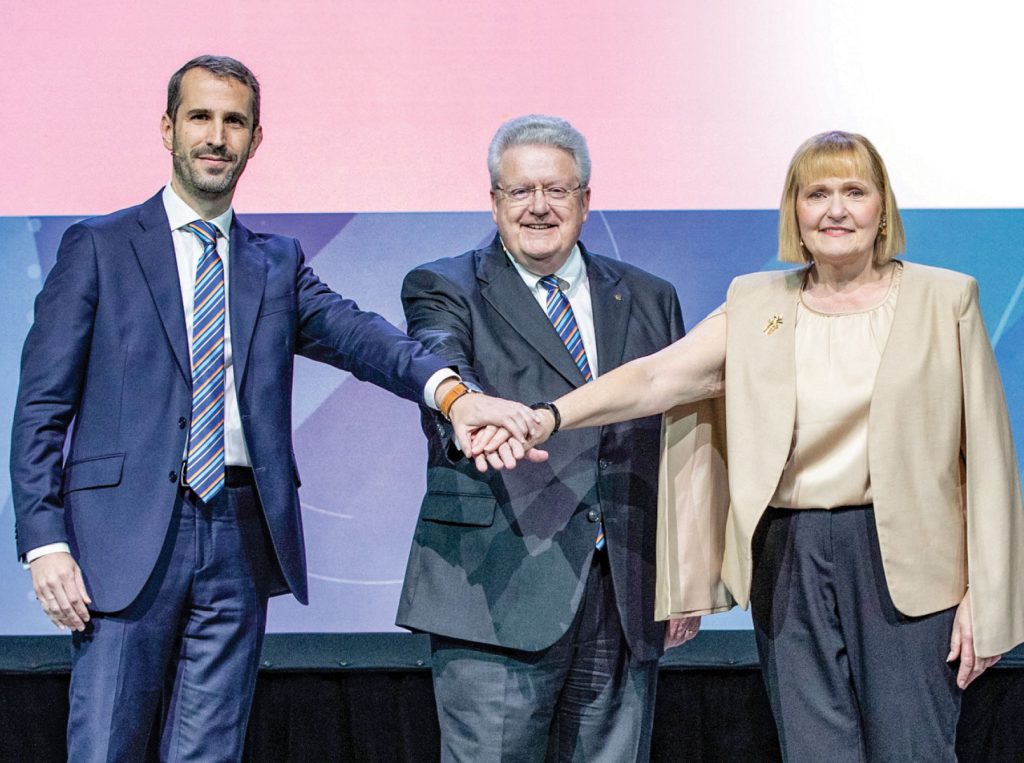
Underlining the need for change and attracting more young members, Stephanie relates the story of the young Indian man, around 31, seated next to her on her recent flight from Milan to Delhi. “I started talking about Rotary and he said, “Oh Rotary, my parents were in Rotary, that’s an organisation for older people. And I told him no, it’s an organisation for you and I’ll tell you why.”
By the end of the flight, they had exchanged cards, and the DGE concerned has already contacted him and guided him to come into Rotary.
On what needs to be done to attract and engage younger people, Stephanie says: “We have to tell people that we are different because they have the wrong perception of Rotary. Young people today want to make an impact fast, quickly… they want things done, like now. One of the things they are interested in, and what makes me so happy is the environment. Because we need action on the environment.”
She adds that communication with youngsters has to improve; “when I talk to Rotarians they say: ‘Ah, these young people, they don’t know anything, they are wet behind the ears.’
And when I talk to the youngsters, the Rotaractors, they say, ‘oh, we don’t want to work with the Rotarians, they are fuddy duddies and they don’t know technology…we have to bring them together so that we can enjoy the benefit of both the groups.”
Pictures by Rasheeda Bhagat and special arrangements
At a glance
Relax: Dancing! I was in Italy and they did a disco night for me… I love dancing! Yes, dancing does that for me. And retail therapy. No, I’m not a shopaholic, I don’t spend money unnecessarily, but love to go and look around.
Fitness: Now it is walking because I have a bad knee… old age, I suppose. But when my knee was better, it was cycling. I like to bike… in Pennsylvania we have special, separate biking trails.
Religion: I practise Russian Orthodox.
Food: Anything that I don’t have to make myself. It’s not that I don’t like cooking; actually I do, but I am all by myself, so it’s no fun to cook for just one person. No matter how much you cut down on the recipe, you still have too much.
Indian food: I love it, and my spice tolerance is rather high. We were at lunch the other day in Delhi and we got served lamb curry and somebody asked me is it too hot for you and I said not hot enough! Do you know why my spice tolerance is rather high? When we were young we would go to church and after church we would go to my grandparents’ home and my grandfather would serve us hot peppers he had made; he was a farmer. We, the grandchildren, would sit around the table, and eat hot peppers till our cheeks were red. So that’s how we I have tolerance for spicy food.
Music: I listen to all sorts of music, the only thing I don’t understand is rap. I’ve tried, trust me. But some of the rap lyrics are not good… they denigrate women! But I listen to country music, international music…
Feminism: I don’t like the word ‘feminist’ because it has taken on a negative connotation. I much prefer ‘equalism’… something that gives opportunities to all, no matter what your gender is.
Movies: Rarely have time for them.
Favourite actor: Meryl Streep. I enjoy watching movies in which she is there.
Reading: Spy novels… I’ve got two in my bag, which I am reading. There is a writer called Lee Child… I’ve read all his Jack Reacher novels.
Favourite novels: That’s a tough one, I have so many favourites. I’ve read a lot of Jack Welch when I was going through my doctoral programme, there are so many things he talked about which made a lot of sense, and one of these is quality in the field of education.
Favourite holiday destination: (Laughs) That is like asking who’s your favourite child. Every time I come to a city for the first time… I find so many beautiful, stunning things. When I am done with being president of Rotary, I will have a lot of miles and I will use them to go to beaches.
Quality of members: We have to grow Rotary for sure; but growing membership is not about putting people in seats. It’s about ensuring that the right people come into Rotary. People who share our core values, fellowship, leadership, integrity, diversity and service. And we know such people… they are there in our families and friends.
Future vision: I worked very hard on the Action Plan and the most important part of our vision is to act together, I can’t do it by myself. We bring lasting change by paying attention to how we work together and take action. Too often we fail to recognise the change that is happening in us; when I work on behalf of someone, or for a cause, I change too.
__________________
Rotary in India
When asked about her impressions of Rotary in India, both the positives and the negatives, particularly in the background of the recent strongly worded letter jointly issued by RI President Gordon McInally and herself, regarding election disputes and other negatives, RIPE Stephanie Urchick says: “I think Rotary in India is fantastic, there are so many fabulous things happening here and we can, and do learn so much from this part of the world. You are the first country that really established Rotary’s partnership with CSR in a big way, and we are learning from it, and this model is working in some other countries, even though it (CSR giving) is not mandatory in those countries. We are finding companies who want to do good in the world and become our partners.”
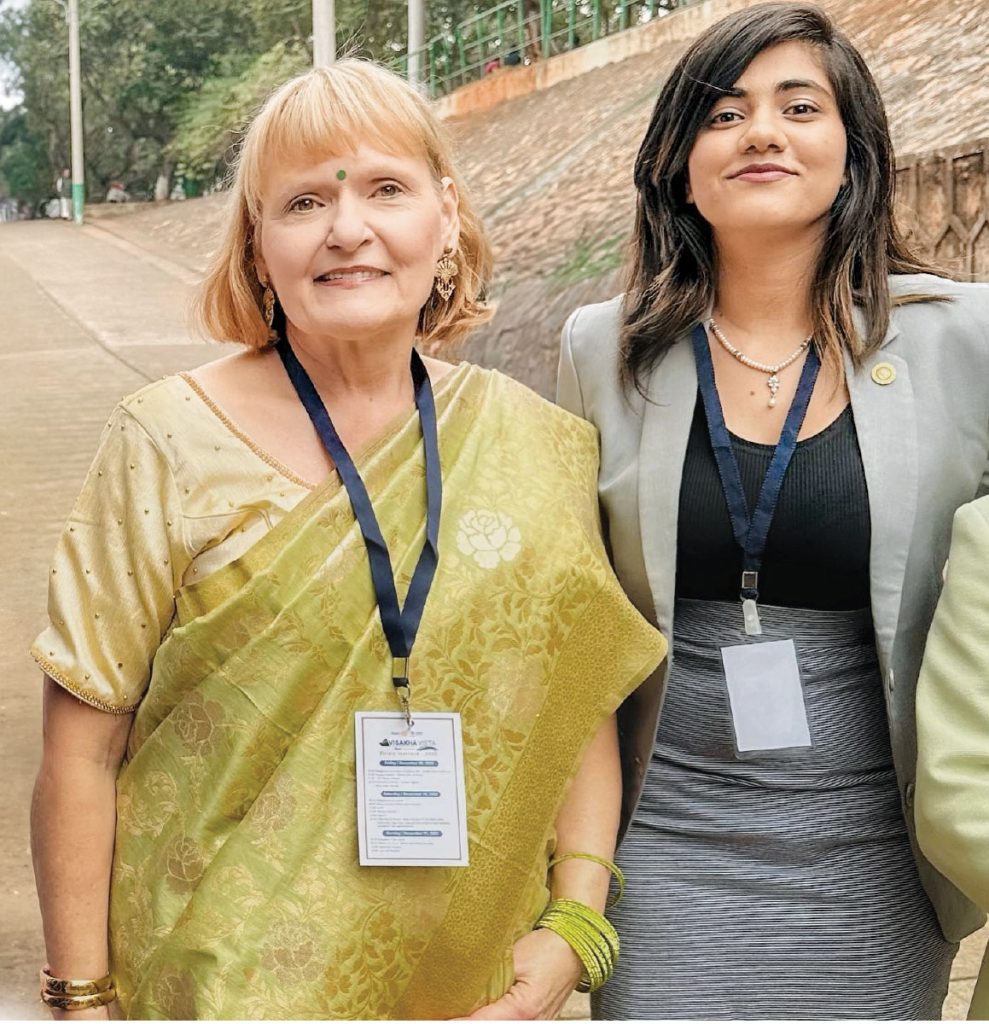
In TRF giving too, India is doing so well… it’s a very generous country, and there is huge potential here. She cites the instance of “the current DG in Delhi who took raising funds for TRF as a challenge.” Last year, in his district, 700 people had donated to TRF. But this year, he asked Rotarians to give just $25 to TRF. “Though not a big amount, it made people who have never given to TRF to begin the culture of giving, and 1,700 people contributed.”
But what she admires the most about Rotary in India is “how revered it is as an organisation. This is one country… for instance, the young man on the flight knew what Rotary is. If it was in the US or Canada he would have asked what are you talking about? This tells me that there is so much service by Rotary happening in India. And because Indian Rotarians take Rotary very seriously. They are proud to be Rotarians. In several other countries, even developing countries, I don’t get that sense.”
But, she adds, “the whole thing about phantom clubs, and election issues are a blemish, that diminish the rest of the work Rotarians do in India. People focus on the negatives; it’s like putting a rotten apple in a barrel full of good apples. The rest of them may be of great quality but eventually that rotten apple will spoil all the others. So that’s why President Gordon came out strongly, because we’ve talked for years saying clean up, clean up, but nothing happened. So he took that very strong step.”
So will she continue to take action against the erring clubs/districts? “Of course, we are people of action. We have to make sure that we clean the way, so that all the good work that Rotary is doing in this part of the world is put in the spotlight and not this stuff.”
__________________
DEI and gender
Any interview with a woman RI president-elect is incomplete without seeking her views on DEI and women in Rotary. So how well is the DEI mantra working in Rotary, I ask Stephanie Urchick. “I believe it is working. In Delhi, Rotarians were telling me about a club with only transgenders, so it is getting better.”
As for women in Rotary, “I believe that women have always been in Rotary. When I went to the Paul Harris Home for the first time, I saw on the wall pictures of Paul Harris, and Jean is standing right behind him. When we look at the earlier conventions… in 1912, a woman got up and said women should be included in Rotary,” says Stephanie.
Even at training events, be it the International Assembly or training for presidents-elect, “when I hear a woman get up and say I am just a partner, I say stop, take out the ‘just’. You are a partner, and if your spouse has been doing Rotary, you’ve been doing it too. So women have always been there. We’ve just not been smart enough about bringing them into Rotary membership.”
When asked if she encountered any difficulties or obstacles in her way because of her gender, her response is a resounding ‘No’. “I am a Rotarian not because of my gender but because I want to change the world. But having said that, I also recognise that people look to others as role models. So I can see a woman looking at me and saying, if she could do it so can I.”
Again, the same thing holds true for her single status. “There are so many single people in Rotary and many of them, both men and women, come up to me and say I don’t have a partner either. So the underlying clear message is that if she can do it without a partner, I can do it too.”
On whether women are better communicators or communicate differently, she says, “Definitely, they communicate differently; the world reacts differently to women and men. That is why I believe so strongly in having a gender balance.”
Importance of peace
When I ask her about the world being a troubled place, with so much of conflict happening all over, Stephanie says, “It’s a complete mess. But we in Rotary approach peacebuilding through a humanitarian lens; that is our goal. We are not going to stop wars, or negotiate to get hostages back. But what we can do, through the programmes we already have, is work on building peace one person at a time, one student at a time, one community at a time. It’s like the story of the star fish. The little boy, when told by a man that he wouldn’t be able to save them all, says I saved this one.”
We have an online programme on Economics and Peace, a very simple two-hour session that shows the difference between negative and positive peace. Our Peace centres around the world are a major, major peacebuilding initiative. More than 1,800 graduates who have gone through these centres are using their knowledge in peace and conflict resolution through practical applications.”

